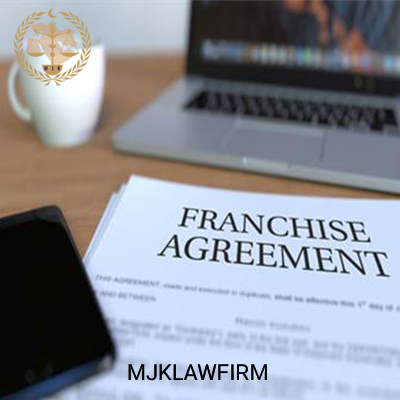Franchising in Iran
Franchising in Iran: Legal Structures and Protection for Foreign Brands
In an emerging market like Iran, foreign brands eyeing expansion through franchising face unique regulatory and practical challenges.
From fast food and retail to education and fitness, franchising in Iran is increasingly viewed as a viable entry strategy—but only if structured correctly under local law. This article offers a comprehensive roadmap to franchise registration, partnership structuring, intellectual property (IP) protection, and commercial contract compliance in Iran.
Whether you represent an established franchise brand or an investor seeking to acquire a master franchise in Iran, understanding the legal nuances is key to long-term success.in mjklawfirm
What Is Franchising in Iran?
While Iranian commercial law does not have a standalone “franchise law,” franchising is legally recognized and governed under a combination of contract law principles, agency law, the Commercial Code, and relevant IP legislation (such as the Trademark and Patent Law).
Franchise agreements are treated as complex commercial contracts that include:
- Licensing of trademarks and know-how
- Territorial exclusivity terms
- Revenue-sharing or royalty arrangements
- Quality control mechanisms
- Termination and renewal provisions
Unlike in some jurisdictions, Iranian law does not require pre-disclosure documents (e.g., franchise disclosure documents), but a well-drafted and locally compliant contract is essential to avoid unenforceability or regulatory issues.
Key Legal Structures for Franchising in Iran
There are several ways to legally structure a franchise in Iran. The appropriate model depends on the level of control desired, tax exposure, and the commercial relationship with the Iranian partner.
1. Direct Franchising
The foreign franchisor grants rights directly to a local franchisee, typically a natural or legal person based in Iran. This is often used for single-unit or area franchises.
Legal Requirements:
- The foreign franchisor must authorize use of its trademarks via a registered license in Iran.
- A formal franchise agreement is drafted and executed.
- No need to establish a local entity unless required by the franchisor’s policy or Iranian partner preferences.
2. Master Franchise Agreements
A more common and scalable model in Iran. The master franchisee acts as a local operator and may sub-franchise to others.
Advantages:
- Delegates operational burden to local entity
- Avoids direct commercial exposure for the foreign franchisor
- Suitable for brands with long-term expansion plans in Iran
Risks:
- Reduced control over brand execution unless strict audit and compliance rights are included
- Complications in resolving disputes or terminating the agreement if poorly drafted
3. Joint Ventures with Local Companies
Some brands prefer to set up a joint venture (JV) with an Iranian partner to maintain higher control, especially in regulated sectors like healthcare or education.
Legal Considerations:
- JV agreement must clarify IP ownership, management rights, and dispute resolution
- Shareholding structure must respect Iran’s foreign investment rules (under the Foreign Investment Promotion and Protection Act – FIPPA)
May require registration with the Organization for Investment Economic and Technical Assistance of Iran (OIETAI) for investment protection and repatriation rights

Follow us on social media
Registering Your Franchise and IP Rights in Iran
- Trademark protection is crucial in any franchise operation. In Iran, this includes:
- Trademark registration through the Iranian Industrial Property Office
- Recording the license agreement (use of trademark by franchisee) to make it legally enforceable
- Optional copyright or trade secret protections (for manuals, software, training content)
- ⚠️ Unregistered marks, even if famous globally, do not enjoy automatic protection in Iran. A local competitor may register a similar mark unless proactive steps are taken.
- If your brand has already been used in Iran without authorization (e.g., copycat stores), you may need to initiate enforcement proceedings or negotiate rebranding with the infringing party.

Key Contractual Protections to Include
A legally binding franchise agreement under Iranian law should clearly cover:
- Territorial exclusivity (preventing parallel franchises in the same area)
- Royalty structure and revenue tracking methods
- Brand standards and compliance audits
- Training obligations
- Termination and renewal provisions under Iranian contract law
- Dispute resolution clause (Iranian courts vs. arbitration; recommended to opt for arbitration seated in a neutral jurisdiction)
To prevent enforcement issues, contracts should be:
Customized for local legal standards, avoiding boilerplate Western models
Selecting a Local Franchise Partner in Iran
Due diligence on your Iranian counterpart is non-negotiable. Factors to evaluate:
- Business licenses and history
- Local influence and commercial ties
- Financial solvency
- Litigation history
- Experience with international brands
Foreign franchisors often engage Iranian law firms to conduct background checks, negotiate terms, and vet compliance with sectoral restrictions.
Common Pitfalls and How to Avoid Them
| Pitfall | How to Avoid |
| Assuming international IP rights apply in Iran | Register trademarks locally |
| Using foreign law only in agreements | Include Iranian legal enforceability provisions |
| Underestimating Farsi translation errors | Use legal translators experienced in contracts |
| Choosing unqualified local partners | Conduct rigorous due diligence |
| Not planning for sanctions compliance | Consult trade lawyers familiar with Iran-related OFAC/EU restrictions |
How Our Firm Helps International Franchisors in Iran
At MJK Law Firm, we support foreign brands at every step of franchising in Iran, including:
- Structuring joint ventures or master franchise models
- Drafting bilingual franchise agreements
- Registering IP rights and licensing agreements
- Vetting and negotiating with local franchisees
- Advising on sanctions compliance and repatriation of profits
- Enforcing brand rights in Iranian courts
Whether you’re just exploring market entry or need to formalize an existing relationship, our bilingual commercial lawyers combine local legal knowledge with international deal experience
Frequently Asked Questions (FAQs)
Q1: Can a foreign franchisor own 100% of an Iranian entity?
A: Yes, under FIPPA, 100% foreign ownership is allowed in most sectors, subject to approval by OIETAI.
Q2: Is franchise income subject to tax in Iran?
A: Yes, royalties and income earned by foreign entities may be subject to withholding tax. Proper structuring is required to avoid double taxation.
Q3: Are foreign franchise agreements enforceable in Iranian courts?
A: If drafted and executed in compliance with Iranian law, franchise agreements are enforceable.
Q4: Can a franchisee register the franchisor’s trademark in Iran?
A: Yes, if the franchisor has not already registered the mark. This creates serious risk—franchisors should proactively register their marks before negotiations.
Q5: Do I need to open a local office to franchise in Iran?
A: Not necessarily. Direct franchising can be done without a physical presence, but some brands prefer setting up a branch or JV for operational control.
📞 Speak to an International Lawyer in Iran
Franchising in Iran offers exciting potential—but also complex legal terrain. If you’re considering expanding your brand into Iran, don’t risk your IP or reputation with vague contracts or unvetted partners.
Speak to an international lawyer in Iran today to structure your franchise model securely, register your trademarks, and ensure compliance every step of the way.
